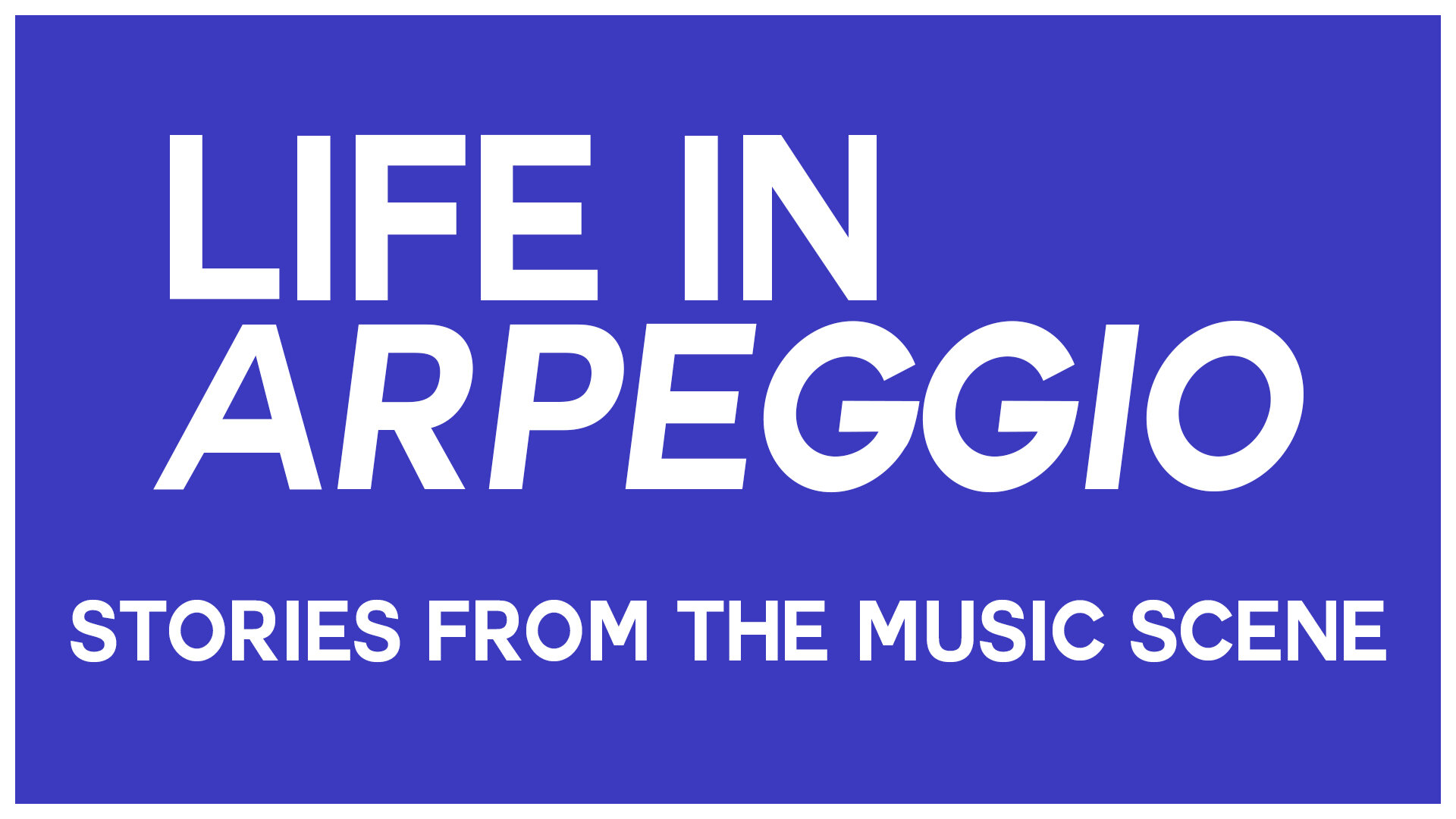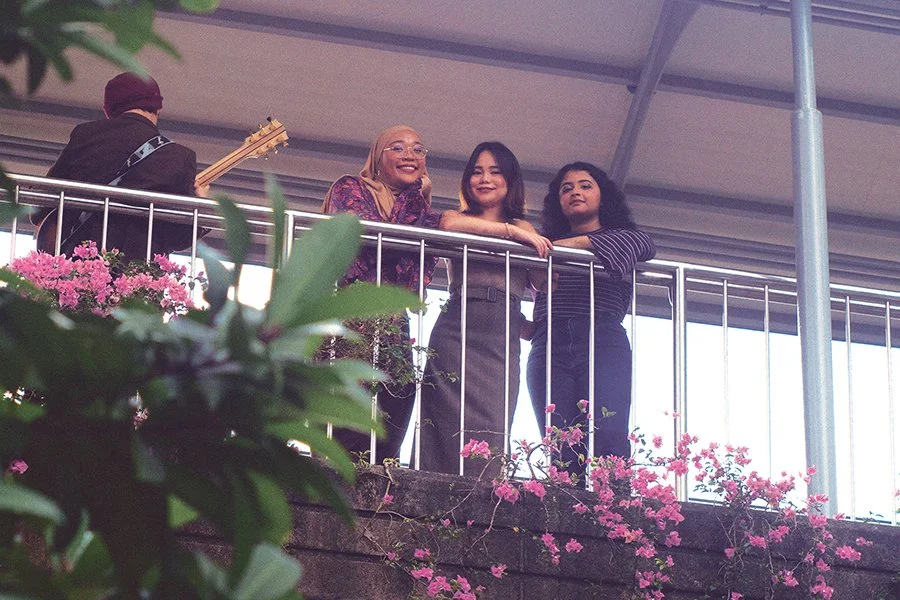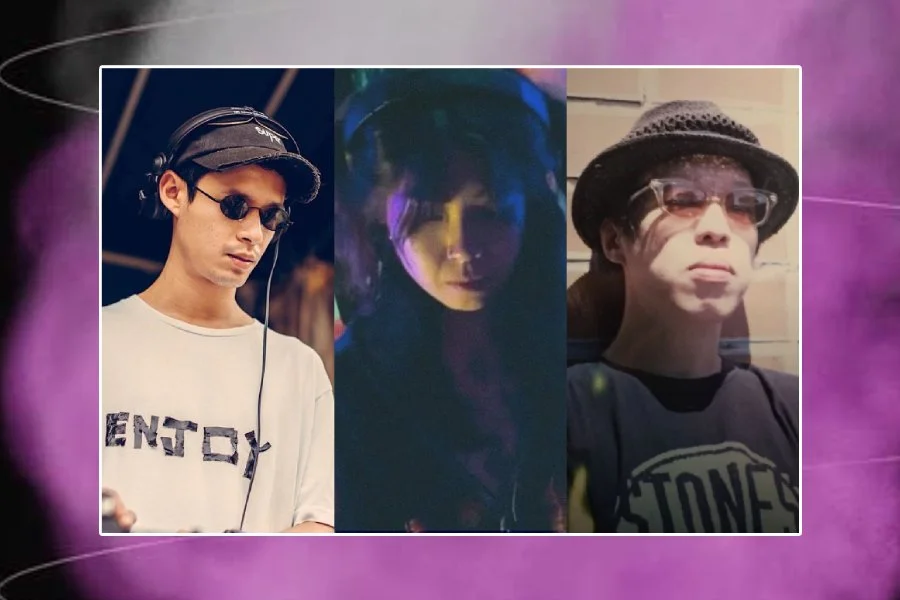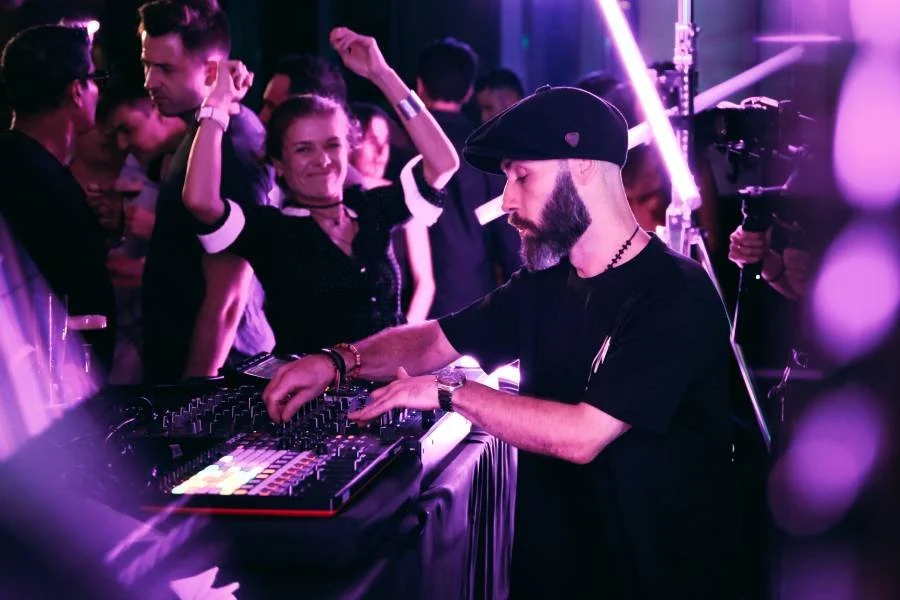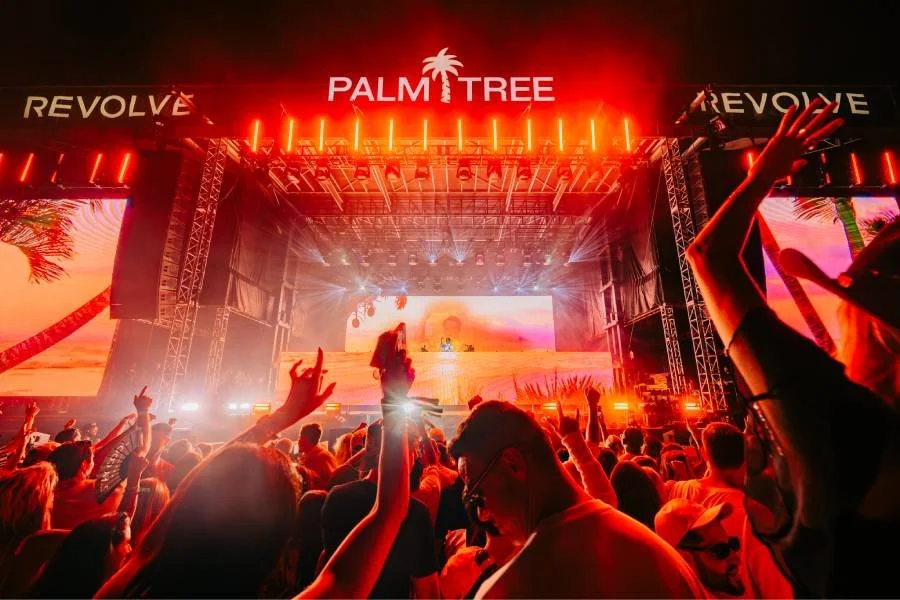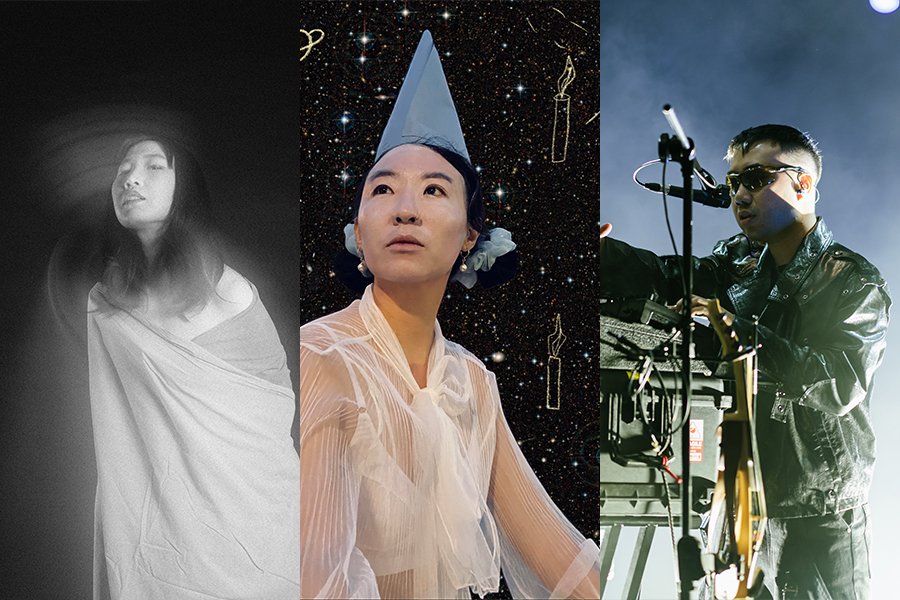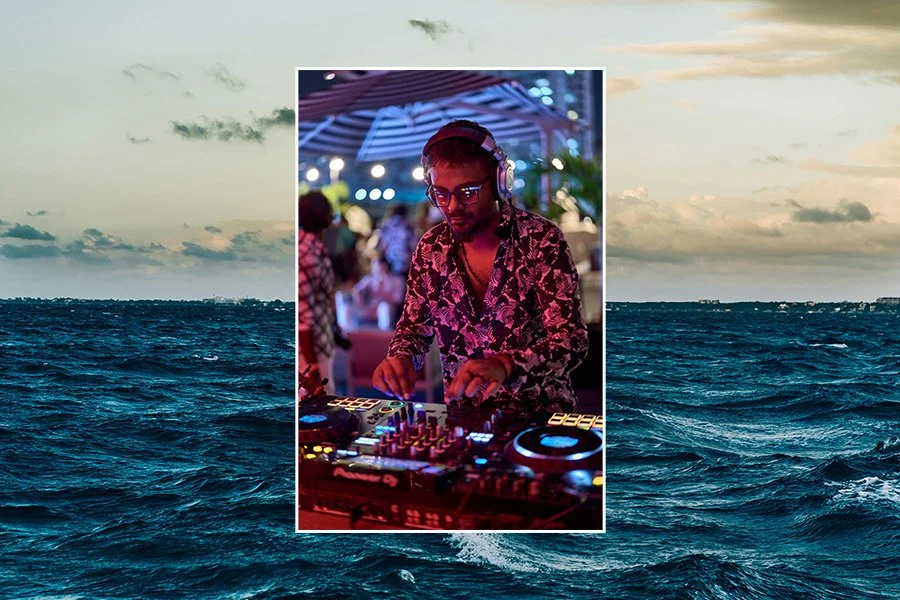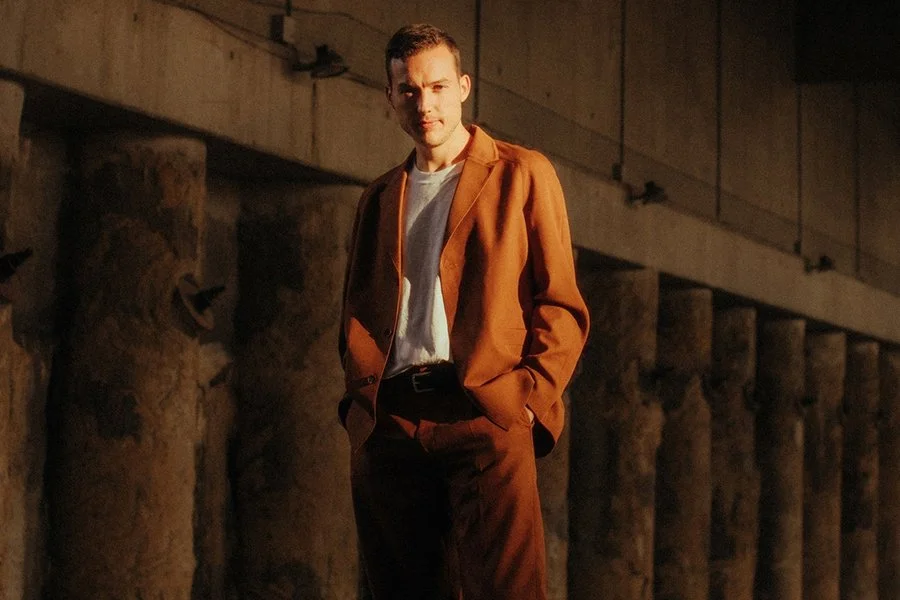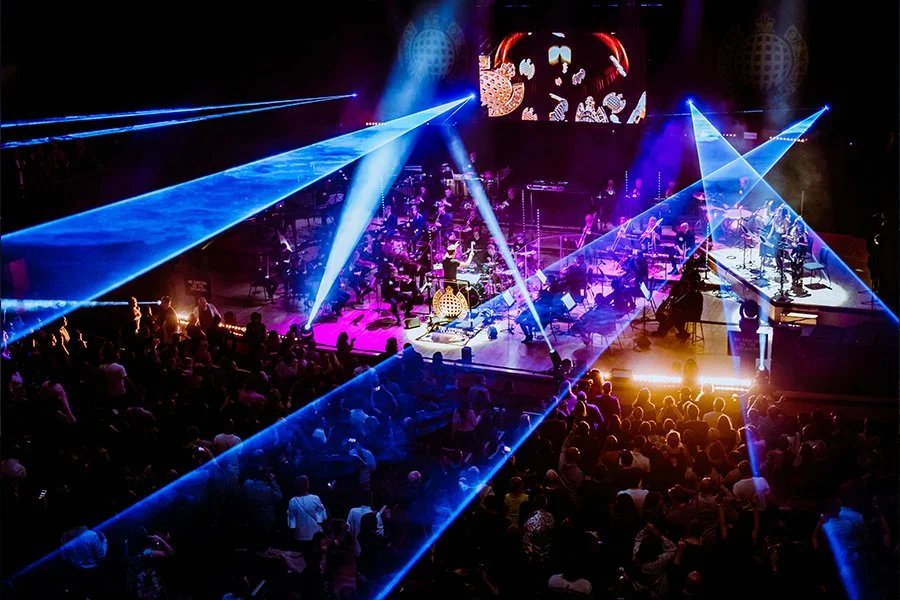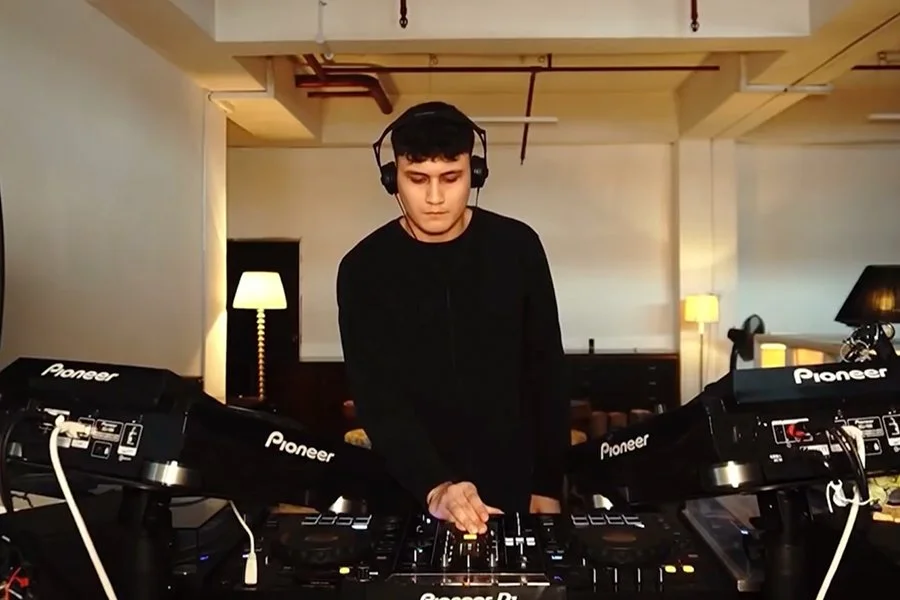The Revelry of LeNERD: How The Open-Format DJ Is Forging A Close Community
From hip-hop turntablist to open-format selector, LeNERD has evolved tremendously (Credit: Courtesy of LeNERD)
Like a spinning record, the rhythm of life often chugs on smoothly. But every now and then, the vinyl skips or the needle hits a snag, and the flow starts to go awry. Even for a turntablism master like LeNERD, who has been a seasoned pro in the industry since 2008, there are disruptive elements, like the pandemic, that are out of his control. But even under the weight of such crushing circumstances, the evolving open-format selector found ways to trudge through the muck of despair.
The ex-resident of Zouk currently co-helms REVELRY – derived from the #SGBassMusic community he also helped build – a collective that pushes the eclectic open-format discipline. On its social channel, you’ll come across snack-sized medleys of trap, bass house, Jersey club, big room, and even techno, flipping between tracks with speed and precision. Aside from pushing the REVELRY identity into physical spaces like Lady Wu, LeNERD has also stayed busy with live-stream performances, radio recordings and DJ competitions that he hosted, inspiring the next generation of turntablists and mixmasters.
LeNERD was a reputable resident DJ at Zouk (Credit: Zouk Singapore)
The long and winding road that LeNERD has traversed represents the antithesis of stagnancy. While others may become complacent, LeNERD has exhibited a musical career that has evolution in its crosshairs. His sound palette has diversified. His wisdom as a selector has soared beyond his deck dexterity. And he’s now leading the expansion of a community that’s finding its snug spot in the scene. This is growth in every aspect. And LeNERD is learning assiduously.
This is the story of LeNERD and his upward journey, and how he’s bringing people closer together with his open-format ideology.
LeNERD’s musical journey started back in 2008 (Credit: Courtesy of LeNERD)
You’ve undoubtedly had a storied career so far in the local music scene. If you could head back in time, what would you tell yourself in 2008 when you were first starting out?
Don’t be afraid of asking for help; it doesn’t make you any less of a man. In fact, it makes you human and it will increase your ability to empathise with others.
You were taught the ropes of DJ-ing by several high-profile selectors. What was it like being under their wing, and what lessons do you carry forward till this day?
I would more accurately break my DJ learning journey into three parts: beginner with DJ Rattle, intermediate with KoFlow, and advanced with Jeremy Boon.
LeNERD wouldn’t be where he is today without the guidance of his mentors (Credit: Zouk Singapore)
After watching a lot of Linkin’ Park (Joe Hahn) and X-Ecutioners (Roc Raida Crew) I knew I wanted to learn how to DJ. The first real-life DJ I’d seen in Singapore was actually Zushan who inspired me to take the first steps to reach out and learn DJ-ing. From there, I met RATTLE doing a DJ-ing showcase at my then-school (Singapore Polytechnic). He taught me the basics of DJ-ing and the aggressive battle style of turntablism
After a couple years of DJ-ing, I got acquainted with KoFlow who taught me turntablism flow and not forcing something to work. He also instilled in me his willingness to learn and evolve, regardless of seniority and experience.
“My greatest takeaway is that there is always more than one way to do things.” (Credit: Zouk Singapore)
Then when I joined Zouk Singapore I met Jeremy Boon, who taught me DJ set programming for large venues. He instilled in me his detail-oriented demeanour in handling all things, responsibility and loyalty.
All three of my beloved mentors have that same kind of stubbornness you see in great athletes. They got to where they were as they disregarded the naysayers and refused to believe in a future where they are not great, which allows them to push through great difficulty to get to where they are today. My greatest takeaway is that there is always more than one way to do things and to see the good in everyone as there is always a lesson to be learnt.
“I would often maximise my time in the [practice] room stretching from eight to 10 hours daily. I was frankly quite obsessed.” (Credit: Zouk Singapore)
Turntablism was a huge part of your meteoric rise. Do you see the art of turntablism as something completely different from conventional mixing? How intensively did you practise back in the day?
I guess DJ-ing is akin to playing a guitar with a band/singer while turntablism is like shredding a guitar or playing a guitar solo. One is more focused on making people dance while the other’s focused on showing the technical aspects of the turntables as an instrument.
I used to be part of Singapore Polytechnic DJs (SPDJ) and as a junior, and I didn’t have access to the keys to the practice room. So I would often maximise my time in the room stretching from eight to 10 hours daily (if possible). I was frankly quite obsessed. As someone who loves music but isn’t traditionally gifted, this instrument andperformance style was a literal dream come true for me.
Everyone makes music for a different reason, and after a while I found out that mine was to be able to communicate my feelings, my passion and my thoughts through my artform. Turntablism at its highest state is basically very aloof and exclusive as only the nerds would get what’s happening half the time. So from there, I decided to blend it with various other artforms to let my general audience understand what I’m doing.
“Turntablism might not be the in-thing for DJs to pursue, but it contains a great history.” (Credit: Zouk Singapore)
Do you reckon turntablism still has a place in today’s EDM age? Why, in your opinion, is it important to keep it alive?
I honestly feel that any high-level DJ performance involves a certain level of turntablism, be it just a simple ‘back spin’ or ‘baby scratch’ or transformer’ fader cut. Sure in the age of EDM, learning music production is important to stay relevant but I personally see learning production as a way to add to my bag of DJ tricks. Now I can DJ ‘more in key’, equalise better when I mix and avoid more clashes.
The same can be said for turntablism. By mastering turntablism, I’ve learnt how to turn a major flop while DJ-ing into something the audience can still continue to vibe or bob their heads to. Turntablism also allows me to be quicker on my feet (and hands) to have the option of fast-mixing in addition to slow-mixing to create variance and dynamics within my long or short DJ mixes. Turntablism might not be the in-thing for DJs to pursue, but it contains a great history, prolific figures and many great lessons for anyone who wants to be a better artist.
One way you’re preserving this tradition is by helping out in DJ competitions and inspiring new generations. Tell us more about what you see from these new batches of talent? Are you seeing new fads in turntablism?
I hosted the 2017 and 2018 Phuture DJ Battle and recently, the 2022 Creative Revolution DJ Battle . Notable trends are that the general entries are getting less and less technical in their approach to these battles. Of course you have a couple of super technical cats in each battle, but the winners are the ones who can marry both worlds.
The ultimate DJ routine is a song – you are basically taking multiple songs to build one original track that symbolises who you are as an artist. Adding surprises (they don’t have to technical tricks) after every few bars keeps things fresh and leaves the audience and judges wanting more.
I understand that bass music is also one of your biggest loves, to the point where you even started a telegram group called #SGBassMusic. Where did this affection for the genre come about, and have you seen it take off in Singapore?
I think my ex-boss, Jeremy Boon, says it best: hip-hop DJs (mostly but not exclusively) who have had to adapt to the rising global interest of EDM have learnt how to use their skills of chopping, cutting, and fast-mixing to become a new breed to DJs known as the open-format DJs, which is what I am.
Coming from a hip-hop background, trap and dubstep were a natural progression in my exploration of music. So in order to promote the sound I love and gather like-minded people, I formed the group #SGBassMusic. Many people argue that ‘REAL’ bass music is like liquid d&b or trip-hop. But looking at how the group has grown, we have trance, hardstyle and house music artists sharing their music there. I think the key to the group is inclusivity, mutual respect for each other’s craft, love for EDM and music festivals.
From watching my first Jean Reiki chill trap set back in 2013 (or 2014) with just 10 people in Blu Jaz’s intimate setting to this. From being able to coordinate a crowd of bass music enthusiasts from the chat to link up at venues such as ULTRA SG’s Worldwide Stage, to organising my past events ESCAPADE & Crowd CTRL (both at Zouk), I would consider these past few years a win for bass music in Singapore.
Let’s talk about REVELRY, another initiative that you’re helming. What is it exactly? A collective? A community? A movement?
So it used to be #SGBassMusic . But since it was so general, I didn’t really know the direction to take it in. After two years of the pandemic, I was so sick of the abolishment of our beloved nightlife that I decided to do something to bring back some semblance of club life. Managing #SGBassMusic and my other past projects taught me that I would require assistance if I ever wanted this initiative to see the light of day so I recruited long-time supporters, Joshua Dillon and DJ Rey.
During the five-pax era (when onlt pre-recorded music was allowed), we planned our first event on 5 February. We did a four-and-a-half-hour pre-recorded DJ mix featuring dope tunes from Foxela, MYRNE, Doppelgangerz, 808Gong, James Hype and more. The response was overwhelming as I felt that everyone has missed nightlife as much as us.
During each REVELRY, we always try to insert a game element in it, from co-op mobile games to co-op drinking games, and even a mystery box game where we put in a ton of punishment cards amongst a few prize cards. We were inspired by the entertainment brought to us by YouTuber, Mr Beast, during the lockdown. He showed us how we can give back to our loyal supporters in a fun and genuine way.To sum it up, REVELRY, as its definition suggests, is a community of like-minded individuals that will move on to do bigger and more fun things in the sphere of entertainment and (hopefully) beyond.
“I’m often told by my underground music peers that I’m too mainstream and told by my general audiences that I’m too underground.” (Credit: Zouk Singapore)
Now let’s switch to one of your biggest milestones. Your long-term stint in Zouk was a dream that many local DJs can only hope to attain. What were some of your most memorable takeaways from that experience? And what did it teach you?
The people. From the people in the office to the general crowd and the loyal supporters. They each have their own story to tell and a lesson to be learnt from. Nightlife has mainly been a safe space for people who just want to forget the problems they have in their normal lives for just one night, as they dance together with their friends under the neon lights. Meeting hundreds of people daily gave me the added perspectives needed for the next stage of my personal maturity and development.
As someone who once manned the decks of Singapore’s most iconic club, surely you must be aware of the segmented subcultures within the industry. Do you think there is equality in the local electronic scene? Is there a harsh divide between the mainstream and the underground here?
I’m often told by my underground music peers that I’m too mainstream and told by my general audiences that I’m too underground. This has always been a problem for music enthusiasts, especially for open-format DJs. We just love everything and we can see the beauty, blood, sweat and tears put in to create each piece of art.
LeNERD hopes to bridge genres with his REVELRY community (Credit: twelvemovement)
There is definitely a divide and I’m in the middle of it all. But I’m hopeful, as I can see more people becoming more open-minded to accept something that is not routine to them. With algorithms on social media getting better & better, you end up watching hours of similar content as they keep recommending you what you like. But after a while, you start to get sick of it and decide to explore something new. What you’re actually doing is expanding your range of acceptance and closing the disparity.
Moving on to your production pursuits. What made you finally want to segue into production after so many years of DJ-ing?
I think it’s a natural progression. After learning DJ-ing, you wanna be better at DJ-ing so you end up learning turntablism. What’s next after turntablism? You start producing your own battle routine for world championships. Slowly, I used production to add more colour to my DJ sets via edits, remixes and eventually aiming to put out original music.
You’ve delved into numerous genres for your productions so far, exploring everything from Moombahton to house. Has it been tricky to stick to one genre and find your sound?
I guess this this the ‘curse’ of being an open-format DJ; people don’t know what to expect from you since you like everything. However, I was lucky to come across DJCITY’s “The 20 Podcast” with James Hype. I cut important parts of the podcast and posted my feelings on this subject matter.
“This obsession with this passion of mine might be unhealthy, but it keeps me going and I love it!” (Credit: Courtesy of LeNERD)
And to end off, the struggle of DJs in Singapore has been extensively documented for the last two years; you yourself were unfortunately let go from your profession. How have you managed to pick yourself up, and what would you like to say to other DJs and nightlife professionals who are struggling out there?
I can’t imagine myself doing anything else long-term aside from being an artist. Sure, I have to take up a new day job in order to make ends meet, but right after my shift, its another two or four hours of DJ-ing, music production, event planning, video filming and editing before bedtime. Weekends are the best for filming and projects that requires collaborations. This obsession with this passion of mine might be unhealthy, but it keeps me going and I love it! I wouldn’t trade it with anything in this world.
After two long years of pushing through the dark, we can finally see some light from the recent capacity expansion and reinstatement of live acts. Fans are all waiting for their favourite local DJs to pick up their headphones and work the dancefloor once again. The show must go on!
(Credit: twelvemovement)
